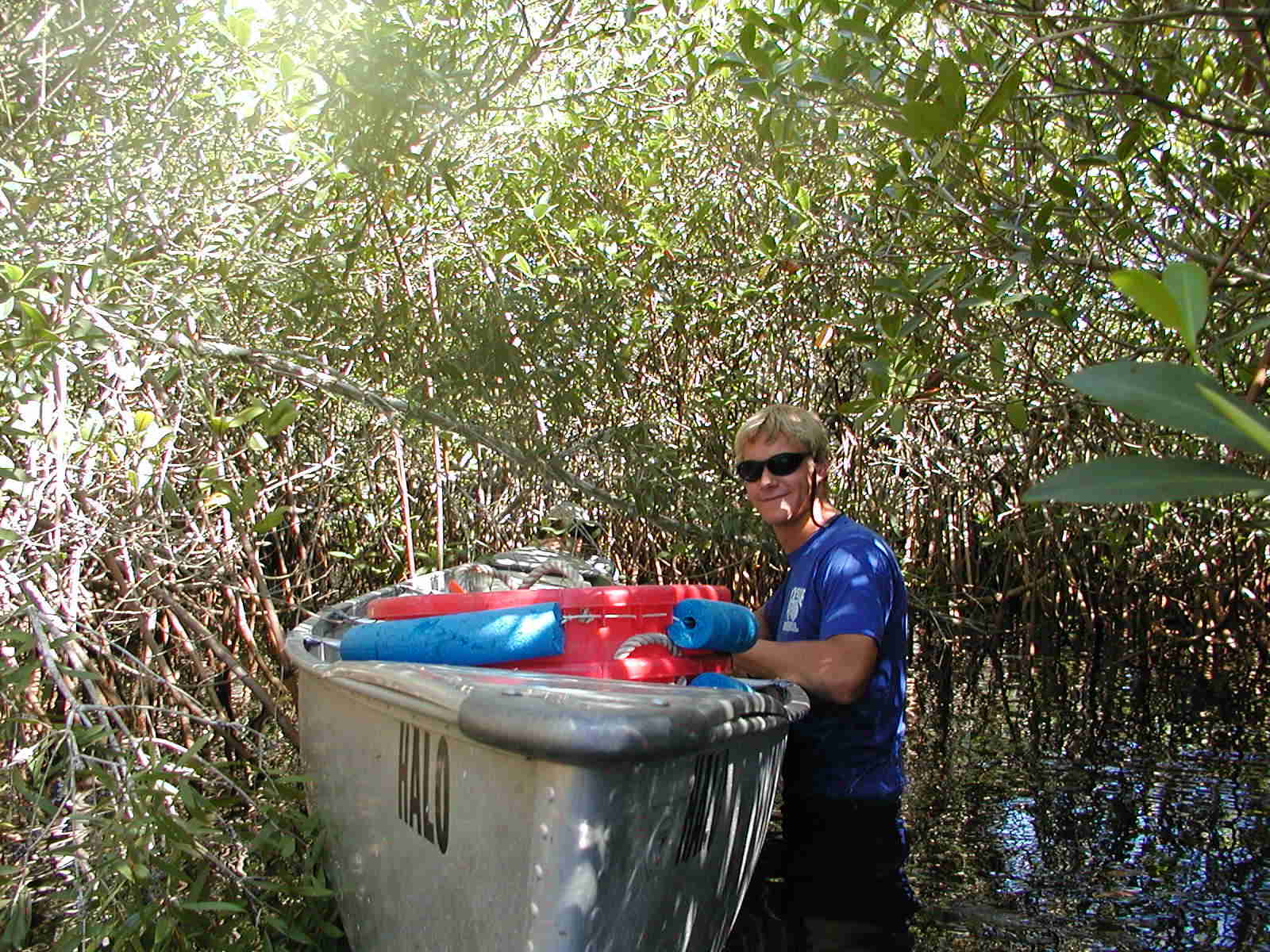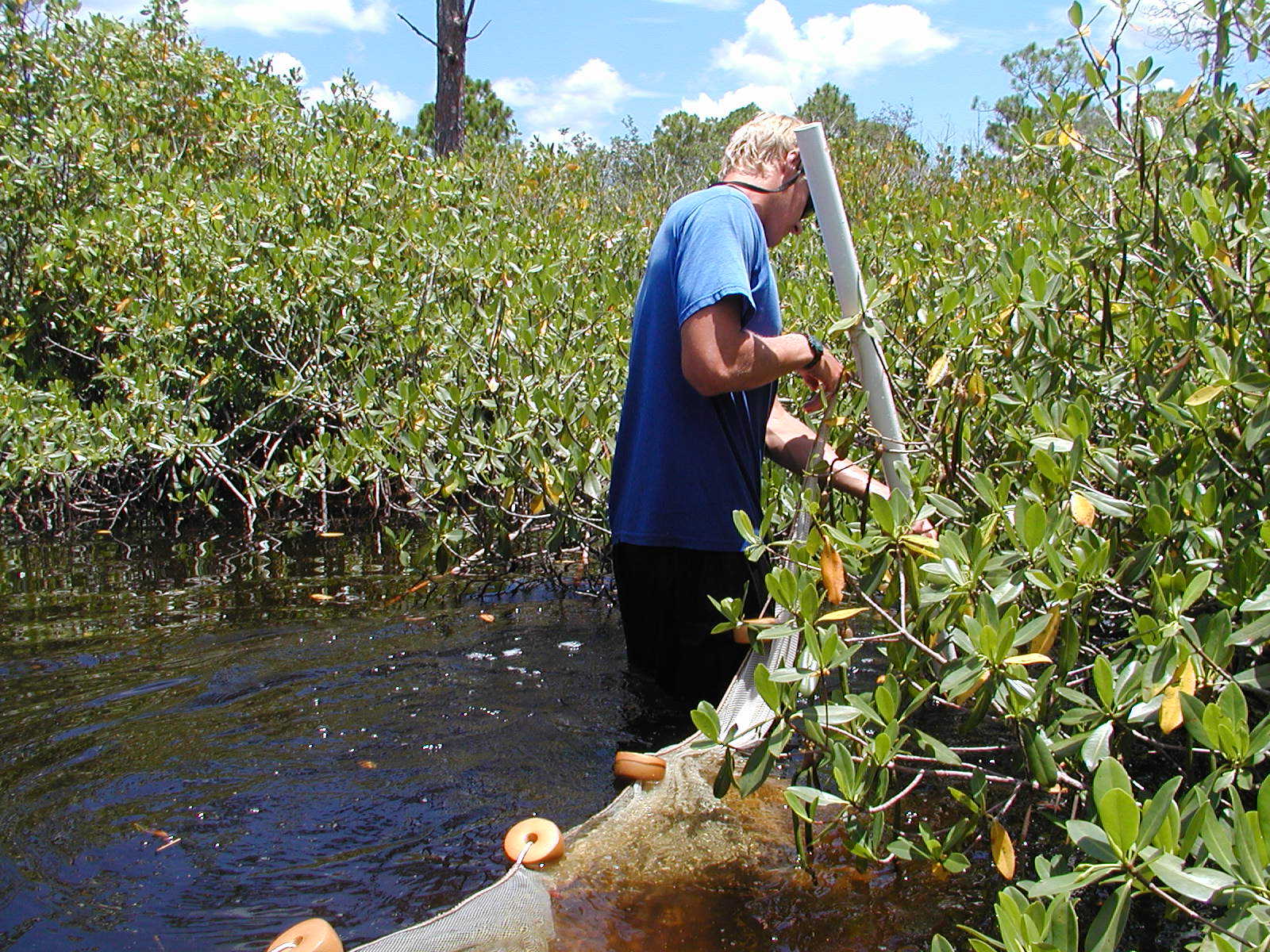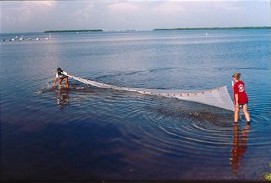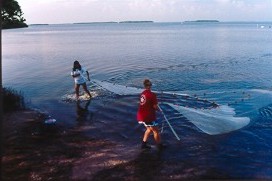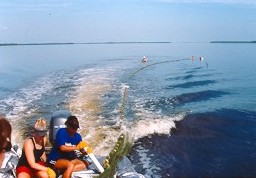
|
"Not a day on the boat went by without laughing or joking, or even singing. We had a blast, and they are all people I would definitely like to stay in touch with." - Lindsey - Summer Intern, 2002. |
||||||||||||||||||
|
Tyna and Kristen (Summer 2002 interns) help keep the net away from the prop, during deployment of the 600' seine. |
 DESCRIPTION OF CURRENT RESEARCH
DESCRIPTION OF CURRENT RESEARCH